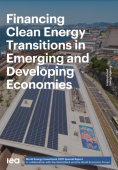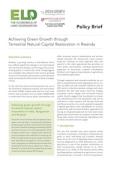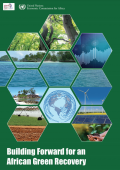
This International Energy Agency report addresses the challenge of mobilizing investment and finance to support clean energy transitions in the emerging and developing world. It draws on a wide range of case studies and recommendations for priority actions to get the investment tap flowing to vast under-served areas.
Zambia is one of the fastest growing economies in Sub-Saharan Africa. The country is endowed with rich natural resources: minerals, forests, agricultural land and water resources. Sustaining long-term economic development requires the use of existing natural resources in an effective and efficient way that delivers benefits to communities, economies and the environment.

This policy brief summarizes the use of the innovative integrated economic and environmental model (IEEM) coupled with land use land cover (LULC), and ecosystem service models (IEEM+ESM) to understand how various policy interventions can affect economic, poverty amelioration, and environmental outcomes in Rwanda.
South Africa’s government and industry have indicated their intention to position the local value chain as a key player in the mobility of the future. Looking ahead, the possibility of developing the domestic LIB value chain should not be overestimated: South Africa displays key pockets of excellence but not all activities in the value chain are likely viable domestically. At the same time, the importance of developing the LIB value chain should not be underestimated.

A swift and bold response is needed to address the devastating impact of the climate, health and economic crises. African finance ministers have called for an injection of external assistance of $100 billion each year for the next three years to close the financing gap of more than $345 billion identified by the IMF. Finally, for climate, health, and the economy, one thing is clear: the entire international community must cooperate to reset and rebuild a stronger multilateral framework to respond to global crises and provide equitable, just and transparent processes and systems for the management and implementation of rapid, monitorable solutions.
